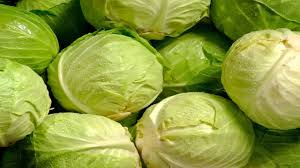Description
Origin
Pineapples are believed to have originated in South America, specifically in the region between southern Brazil and Paraguay. They were later introduced to other tropical regions worldwide by European explorers in the 15th and 16th centuries.
Pineapples take about 18-20 months to be ready for harvest.
The name “pineapple” was given by early European explorers who thought the fruit looked like a pine cone.
Other Names:
Yoruba: Ọpe Oyinbo
Igbo: Nkwuaba
Hausa: Abarba
Health Benefits:
Rich in Vitamin C, which boosts the immune system.
Contains bromelain, an enzyme that aids digestion and reduces inflammation.
High in antioxidants, which help fight free radicals in the body.
Supports eye health and reduces the risk of macular degeneration.
Promotes wound healing and skin health due to its high vitamin C content.
Nutritional Information (per 100g):
Calories: 50 kcal
Carbohydrates: 13.12 g
Sugars: 9.85 g
Fiber: 1.4 g
Protein: 0.54 g
Fat: 0.12 g
Vitamin C: 47.8 mg (80% of Daily Value)
Fun Fact: Did you Know?
It is a symbol of hospitality and warmth in
Uses:
Consumed fresh as a snack or in fruit salads.
Used in cooking and baking, such as in pineapple upside-down cakes and tropical dishes.
Pineapple juice is a popular beverage and can be used in cocktails.
The core and rind can be used to make fermented drinks like tepache.
Recipes & Videos:
International Recipe: Pineapple Fried RiceVideo: How to Make Pineapple Fried Rice
Local Recipe: Nigerian Pineapple Ginger JuiceVideo: Nigerian Pineapple Ginger Juice Recipe
Pineapples
Best Storage Method:
An uncut, ripe pineapple will last for around three days on the countertop before it becomes inedible. You can extend the life of your uncut pineapple by an extra three days if you keep it in the fridge. Trimmed and cut pineapple keeps for five to seven days when you store it in an airtight container in your fridge

 Cart is empty
Cart is empty 








Reviews
There are no reviews yet